‘It’s killing them’: Vet condemns couple’s outrage over $37k vet bill
A specialist animal surgeon has criticised a couple who complained about their dog’s costly vet bill for treatment that saved its life.
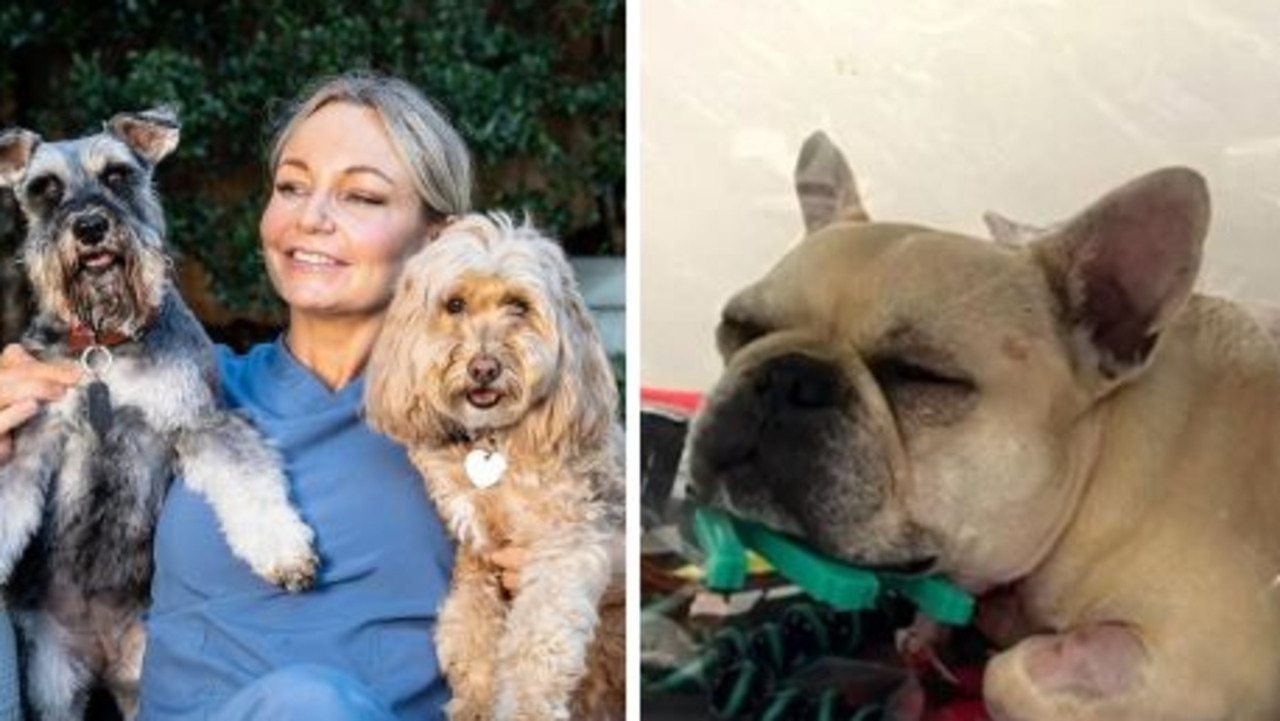
A Queensland veterinarian has defended an emergency vet clinic in NSW after a couple claimed it overcharged them for their French Bulldog’s care which set them back a staggering $37,000.
Five-year-old Matisse was treated at Sydney Veterinary Emergency & Specialists in the suburb of Rosebery over the Easter weekend last month after her health suddenly deteriorated.
Her owners Sabrina and Daniele noticed their pet’s back legs had become wobbly, which prompted a visit to the local vet twice before they were sent home.
“We brought her back home, I think she was in a lot of pain,” Sabrina told A Current Affair, adding that “her breathing became really, really bad.”
The couple made the lifesaving move to take their dog to the emergency clinic where her health continued to rapidly decline despite being put “under oxygen”.
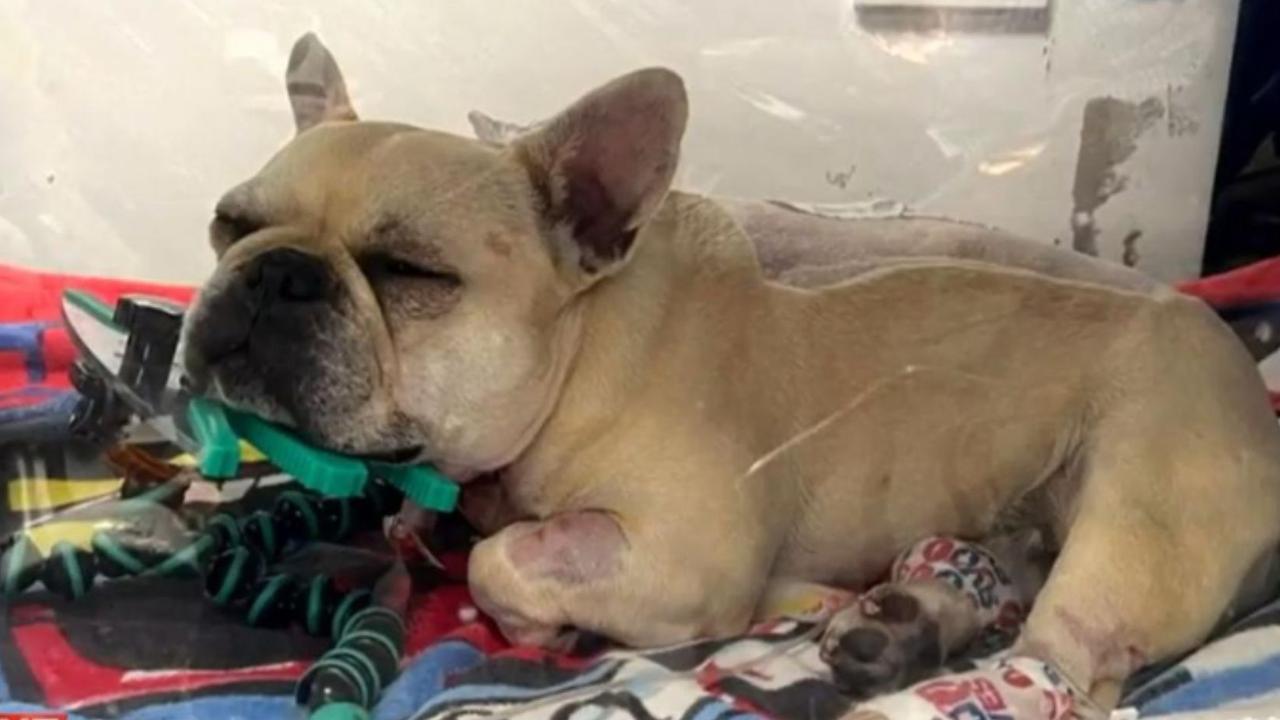
The decision was later made to keep Matisse at the clinic overnight, with her owners signing away a $3000 deposit for her treatment.
Due to not having pet insurance, an estimate for the cost of the family dog’s treatment suddenly escalated to $8900 with further tests only adding to the final price of the bill.
Matisse reportedly required spinal surgery, CAT scans, 15 paracetamol pills, and monitoring over a six-day stay which cost a total of $36,896 including the $4087.07 public holiday surcharge.
“We had to find the money from somewhere, and they (the clinic) wouldn’t budge off the price at all,” Daniele told ACA.
“I had to sell a few designer handbags that I didn’t really want to part with,” Sabrina added.
“But, you know, you do what you have to do.”
The couple are now calling on the vet to reconsider their prices in an attempt to prevent other families from being stung by a “massive bill” – but not all have agreed with their warning.
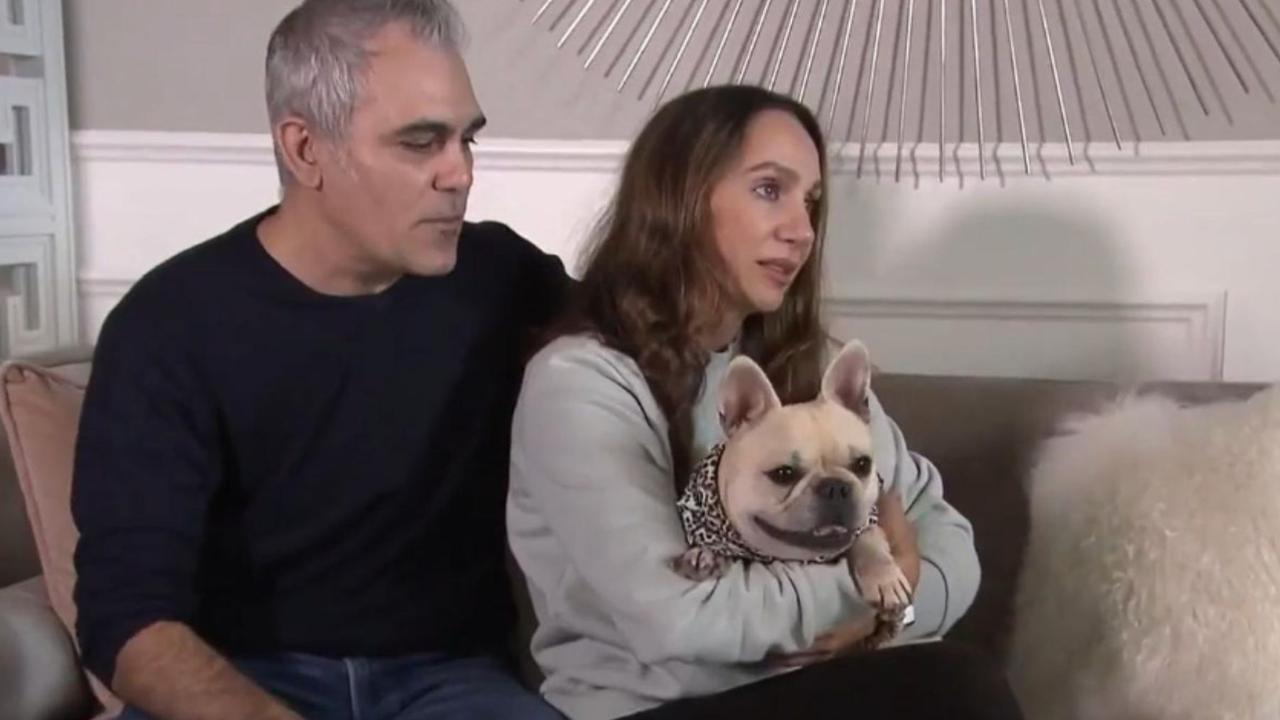
Vet’s word of warning
Abbie Tipler, a small animal specialist surgeon from St Lucia in Queensland, has slammed the couple’s attitude towards the Sydney veterinary clinic that saved their precious pet’s life.
In an open letter addressed to A Current Affair, which she shared publicly to professional social networking platform LinkedIn, Dr Tipler expressed her concern about how such complaints impact the mental health of veterinary staff.
“Veterinarians are not just tired of the emotionally manipulative narrative that they must not care about animals unless they provide this care at a low cost – it is actually killing them,” she wrote.
Dr Tipler went on to explain those working in the profession experience “four times the suicide rate of the general population”, before citing how stories like Matisse’s “contributes” to that devastating figure.
The Australian Veterinary Association backs this claim, with research studies highlighting long working hours, difficult clients and problems with interpersonal relationships as causes of stress.
“As hardworking individuals, we go into the profession optimistic and hopeful about saving lives. In fact we pay thousands of dollars to train to do just that,” Dr Tipler said.
“Veterinary specialists … pay even more for training, and make sacrifices you can’t imagine.
“What we didn’t factor in, was the fact we would get daily abuse for doing our job, because we need to charge for this service so that, you know, staff, rent, equipment (and) loans can be paid.”
Dr Tipler then went on to highlight the risks that come with having high-maintenance dog breeds that are predisposed to costly health issues, namely the french bulldog.
Brachycephalic breeds like boxers, boston terriers, pugs, shih tzus and chinese shar-peis to name a few, may look cute due to their squishy faces but vets have warned owners should prepare for the health issues that come with that.
Features like excessive skin folds and squashed noses can lead to several pricey health conditions including increased rates of skin disease, digestive disorders, dental disease, pneumonia, breathing difficulties and higher risk of heat stroke.
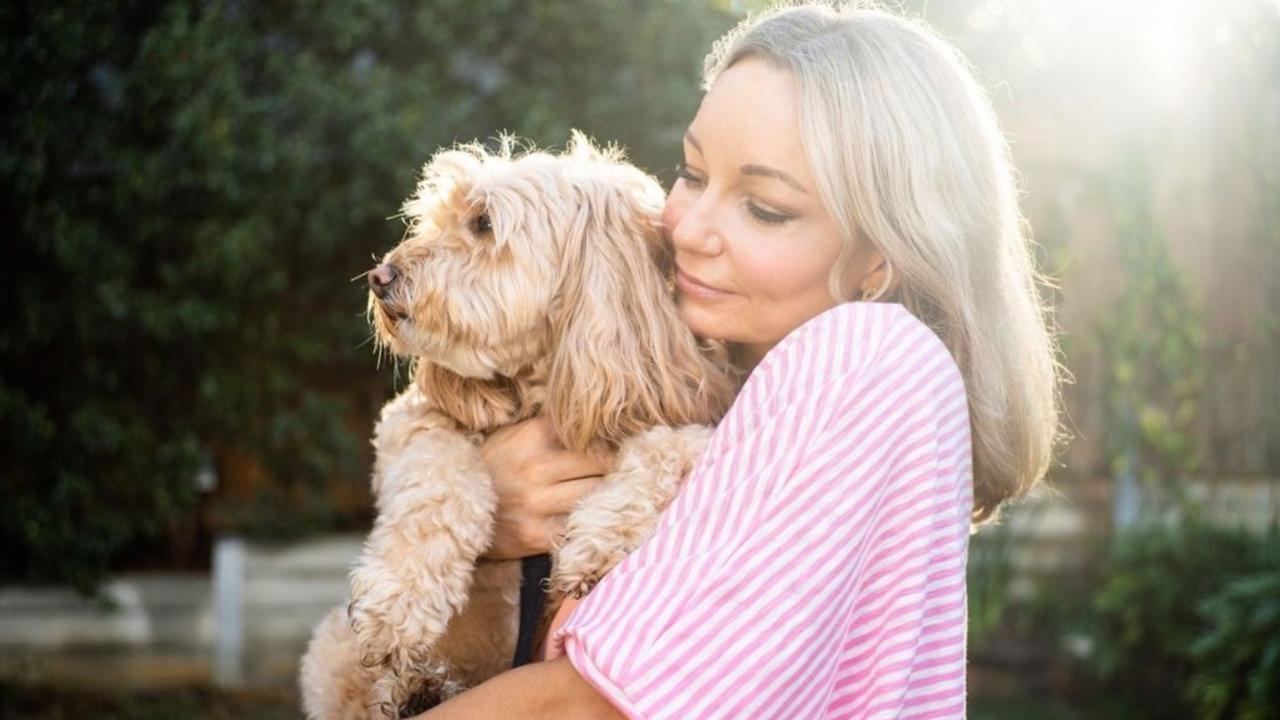
Dr Tipler said owners should be aware of these risks and need to be prepared to pay up if medical treatment is needed as vets put in a lot of physical and emotional work to provide these breeds with a renewed lease on life.
“The french bulldog is the cutest breed you could ever meet … The reality though – they are bred for the cute squishy faces and not for health,” she said.
“In fact, things have gotten so bad, some may say they are virtually incompatible with life.”
She later told news.com.au: “Unfortunately, despite our best efforts, complications arise”.
“For example, around 5 per cent of dogs requiring airway surgery will have a major complication that results in the need to place a temporary tracheostomy tube into their trachea, so that they can breath.
“This is a tube that bypasses the upper airway ie. the affected region. These temporary tracheostomy tubes require 24 hour monitoring as if they block, it is rapidly fatal for the patient.”
Due to the difficulty that comes with treating such conditions, Dr Tipler said the emotional toll it takes to help such breeds can be detrimental to a vet’s mental health.
“Vets try to save them, often to no avail,” she said, before stating how some owners buy breeds that may one day need life support yet don’t want to pay for the vet bills associated with such treatment.
It’s understood Dr Tipler is not associated with the Sydney veterinary clinic which provided the multi-thousand dollar care to Matisse.
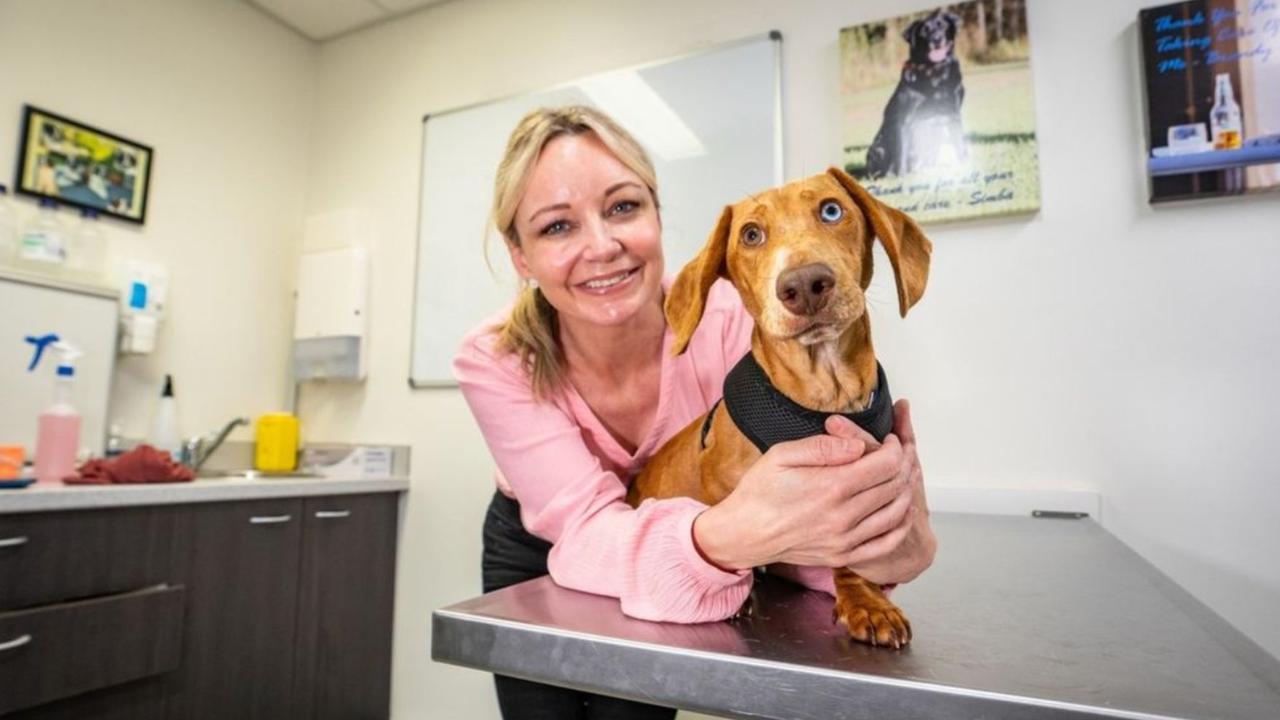
The cost of treatment
Dr Tipler revealed why advanced cases cost so much, stating that the price of operating expensive machinery, the need for around-the-clock support staff and the need for numerous medications all add up.
“(Some patients) often require a CT scan or MRI – the CT scanners cost around $300000, and MRI over a million just for the equipment, not the building space,” she said.
“They also require multiple members of support staff for anaesthesia and recovery, a specialist (who) oversees the case and multiple drugs are administered orally and IV, and these require staff to do this.”
Dr Tipler added that due to no such thing as Medicare or drug subsidies for animal medication, the cost of these resources are often a lot higher than human treatments.
“Medications are often purchased by veterinary hospitals in smaller quantities, meaning it is much more difficult to provide these at bargain chemist-warehouse type prices,” she said.
“Also, human patients often do not require sedation or anaesthesia for their imaging.”
When Dr Tipler is providing a service she said she always provides a price estimate for the customer and clearly advises of any complications risks.
She also added treatments are optional and there is “never any pressure to go ahead with advanced treatments”.
“It is always optional as to whether people wish to proceed based on our estimates,” she said.
“However if people wish to proceed, we need them to pay their account or we cannot operate as a business and pay our staff.”
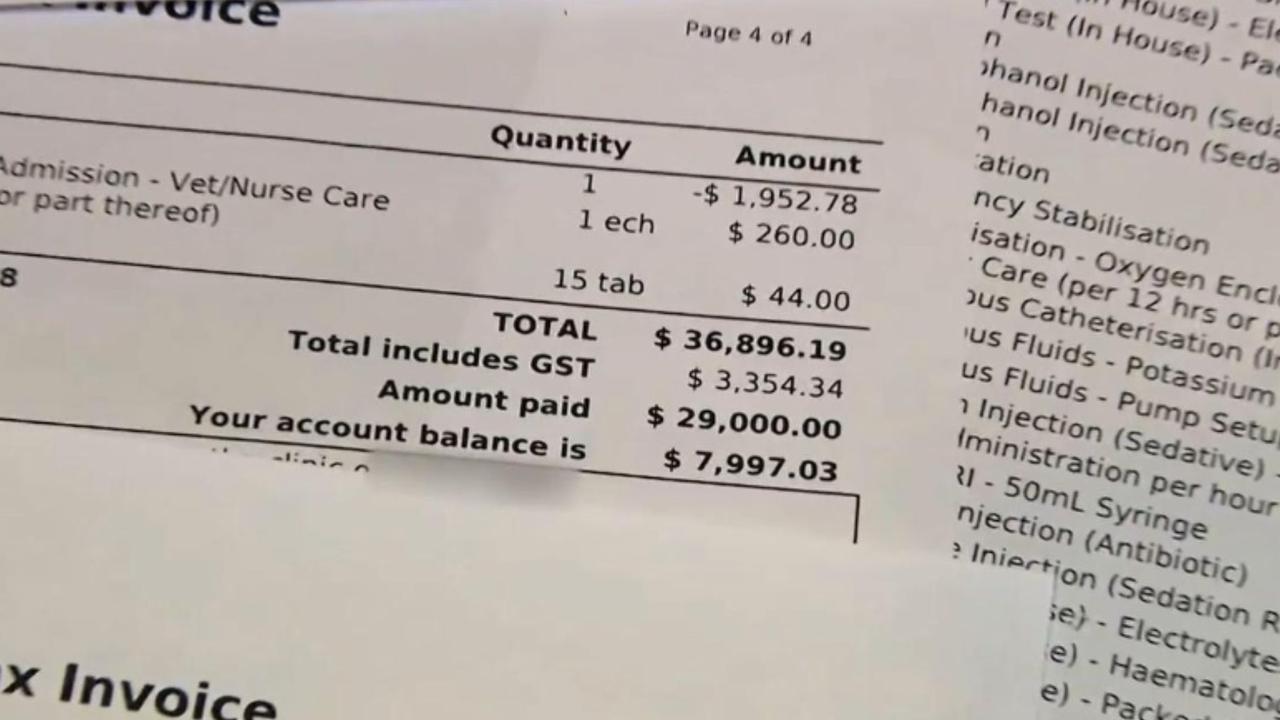
Plea for ‘customer outbursts’ to stop
The vet’s comments were backed by a former veterinary nurse who revealed how “customer outbursts” drove her away from the job.
“People are more than happy to pay $8000 for a puppy so they can look cool on Instagram, but as soon as they need to provide lifesaving care, their life isn’t worth what it costs. This is a big reason why I left,” she said.
“If people knew how much it actually costs to run a vet clinic, they would understand the costs.
“Not only are you paying for the vet nurses and vets (who are often underpaid), you’ve got the clinic, the insurance, fitting out the clinic, gas, electricity, water, disposables like bandages and syringes, medications and drugs, and I’ve probably missed a lot.”
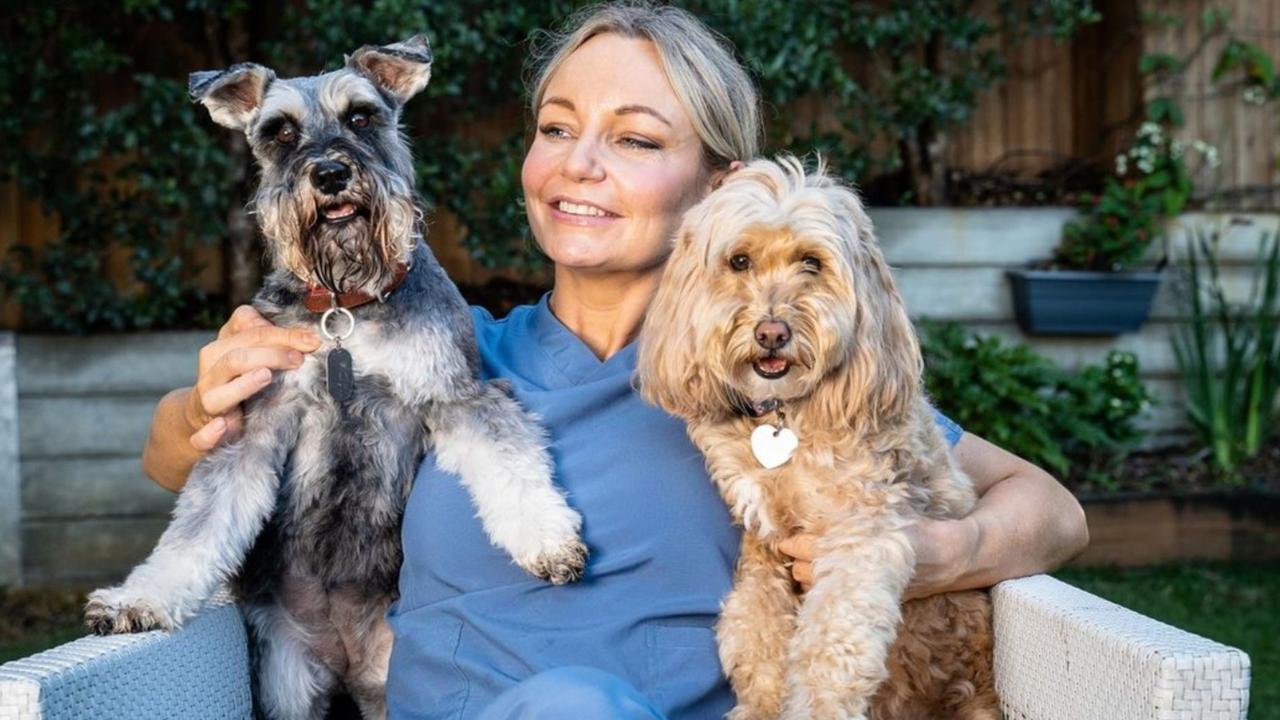
Meanwhile, others who read Dr Tipler’s post called on dog owners to invest in pet insurance to avoid such costly situations, particularly if they have a breed that’s got a history of expensive health issues.
One french bulldog owner added how such insurance covered 80 per cent of a pricey vet bill after her dog was hit by a car in 2021.
“(My dog’s) life was saved by a vet surgeon specialist leading a whole team of specialists at a teaching veterinary clinic. The care and hours put into saving my dog were extraordinary,” she said. “My frenchie was intubated and had complications due to being brachycephalic.
“She spent a week in 24 hour specialist care. The bill was very high … but I have insurance because it’s my responsibility.”
Dr Tipler added: “Pet insurance is a must for these breeds, so in the instance they do require lifesaving intervention, the professionals that come to the rescue, can do their job to the highest standard”.
“Cutting corners and costs when it comes to treating these breeds, I have seen result in disastrous outcomes. They benefit from meticulous care and monitoring.”
A Current Affair has been contacted for comment in relation to Dr Tipler’s letter.
The vet claims she is yet to receive a response from the program.






